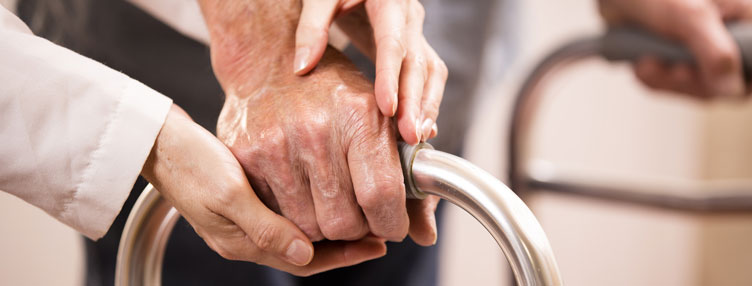Palliative care and end of life
The choice to care for a person living with dementia at home is a very personal decision – both for the person living with dementia and those who care for them.

Carers and family who choose to care for their loved one at home will require support from medical, nursing and allied health staff and community services to provide palliative care and end of life care. The palliative approach is recommended for a person in the later and end stages of dementia (1:p90) as is, where indicated and available, the involvement of palliative care professionals. Some people living with dementia will have, or will develop, comorbidities that add to the complexity of care at home.
As cognitive impairment may impact on the person’s ability to consent or adhere to treatment, the person’s advance care directive, if it exists, should guide the treatment and care provided (1:p90). Health care professionals can collaborate with the person who has dementia and their families to develop an end of life plan, and to put it into practice when the time comes. However planning for end of life may be made difficult due to the unpredictable nature of the disease.
Rapid physical changes at the end of life require sound guidance from medical practitioners to assist with pharmacological changes; from nursing to assist with continence and skin care; and from a range of allied health professionals to provide guidance and practical advice.
Practice points
Occupational therapists:
provide information to the person living with dementia and carers to enable them to make an informed decision about the choice to care for their loved one at home
assess the needs of the person living with dementia and their carers
prescribe a range of equipment, arrange brokerage and train the carers to use it.
Physiotherapists:
- help the person living with dementia to maintain mobility (standing and walking as able) and range of movement
- optimise respiratory function
- help prevent skin breakdown with advice regarding appropriate positioning
- suggest equipment to help with transfers and mobility
- advise and train carers to provide physical assistance in a way that is safe for both themselves and the person living with dementia.
Dietitians:
- provide expertise about food and nutrition and where to access supplements
- provide education, support and reassurance when the time comes to cease nutrition and hydration.
Speech pathologists:
- assess and provide education and options around any deterioration in eating, drinking and swallowing, such as comfort feeding and the use of safe swallowing strategies
- help the carers understand changes in communication and implement strategies to support the person’s needs to be understood as much as possible.
Social workers:
- provide emotional support and guidance
- liaise between services and health professionals.
The National Dementia Helpline is an Australian Government funded initiative.

